Theory of Machines: Velocity Analysis using Relative Method
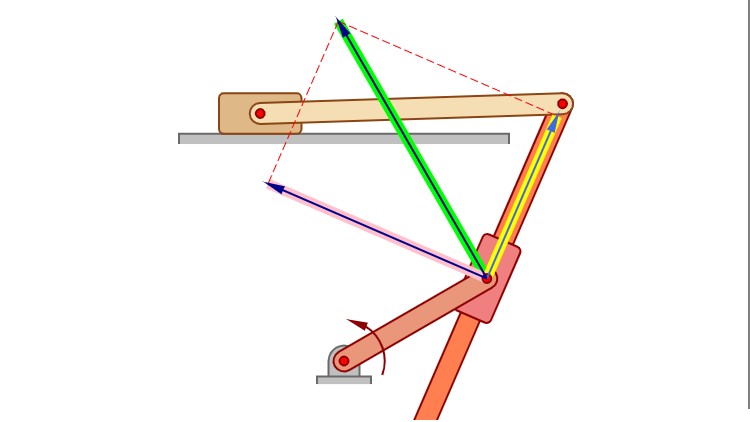
Why take this course?
🎓 Course Title: [Mastering Velocity Analysis in Theory of Machines]
👩🏫 Instructor: Shahram Shokouhfarcourse Description:
Unlock the Secrets of Velocity Analysis with Our Comprehensive Course!
Welcome to "Theory of Machines: Velocity Analysis using Relative Method" – a meticulously crafted online course that will elevate your understanding and proficiency in analyzing the motion of mechanical systems. With a focus on the Velocity Analysis, this critical aspect of mechanics can be a daunting task, but with Shahram Shokouhfarc's guidance, you'll master it in no time!
Why Choose This Course?
This course stands out from others due to its streamlined approach. We've distilled the essence of what you need to know into a concise and powerful learning experience. It's designed to save you hours of confusion and self-study, offering you a direct path to mastering velocity polygons and the intricacies of sliders, pins, rolling/sliding contacts, and auxiliary point techniques.
Course Highlights:
🎯 Understand Relative Motion: Learn the principles of relative motion between points in a mechanical system.
✅ Draw Velocity Polygons: Master the method of relative velocities to construct velocity polygons, which are essential for understanding the instantaneous motion of links in a mechanism.
✴️ Utilize Shortcuts: Discover the power of velocity images that can simplify your analysis process.
🎠 Solve Complex Problems: Practice with a range of examples, starting from basic linkages to more complex mechanisms with sliders and pin-on-slot joints.
🔄 Handle Rolling and Sliding Contacts: Learn how to accurately deal with the unique kinematics found in rolling and sliding contacts within mechanical systems.
🔍 Apply Auxiliary Point Techniques: Gain expertise in analyzing floating links using the auxiliary point technique, a crucial skill for more advanced mechanisms.
📐 Illustrated Examples: With numerous examples and detailed illustrations, you'll visually understand the kinematics of the systems and how they interact.
What You Will Learn:
-
Relative Motion Concepts: The backbone of velocity analysis is understanding how different points in a system move relative to each other.
-
Velocity Polygon Method: Learn to calculate and draw the velocity polygon, which provides insight into the instantaneous motion of a system's links.
-
Velocity Image Shortcut: A powerful visual tool that can simplify complex velocity polygons.
-
Mechanism Analysis: Tackle problems involving sliders, pins, rolling and sliding contacts, and auxiliary points with confidence.
-
Complex Problem Solving: Apply your newfound skills to more intricate mechanisms and understand their dynamics.
Who This Course Is For:
This course is ideal for:
- Engineers and students studying mechanical engineering or related fields.
- Individuals interested in the principles of machine design and analysis.
- Those looking to enhance their understanding of kinematics in a practical, application-oriented context.
Join Us on This Exciting Journey!
By enrolling in this course, you're taking a significant step towards becoming proficient in velocity analysis. With each lesson, you'll build upon your knowledge and skills, eventually tackling complex problems with ease. Plus, you'll have access to a wealth of resources to help you self-evaluate your progress.
Don't miss out on this opportunity to master velocity analysis in the theory of machines. Sign up today and embark on a journey of learning that will transform the way you think about mechanical systems! 🚀
Ready to dive into the world of Velocity Analysis? Click the button below to enroll now and unlock your full potential in Theory of Machines! 💫🎓
Course Gallery
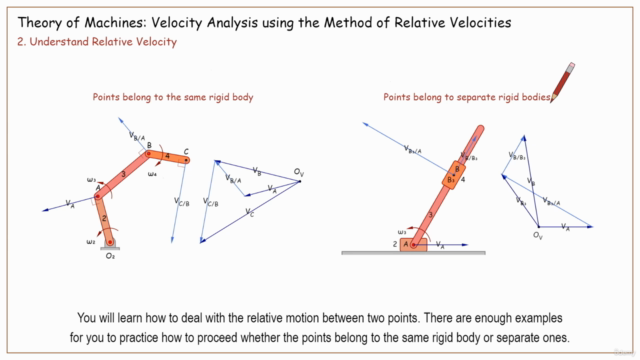
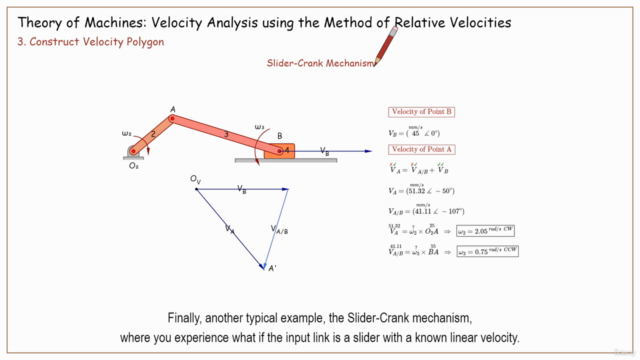
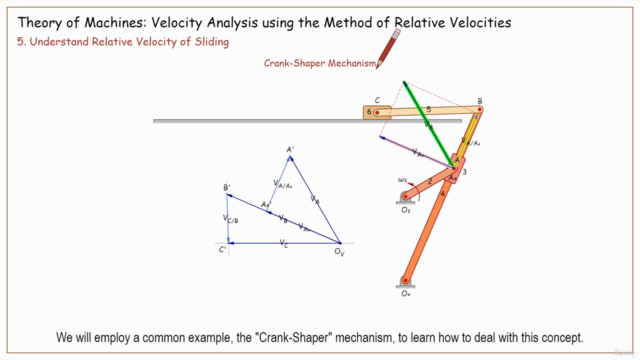
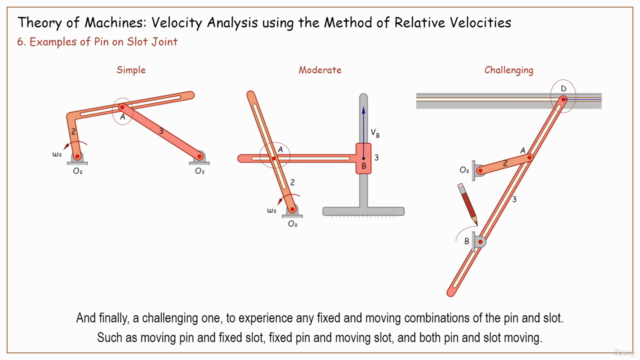
Loading charts...